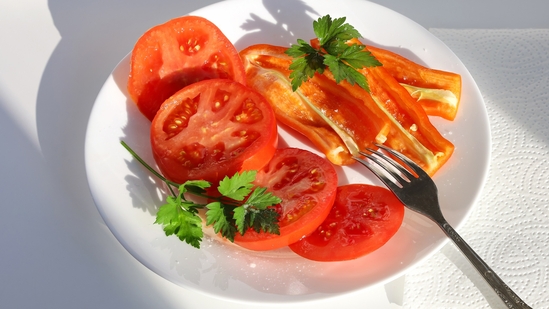The Reality of the Mono Diet: Why It’s Not a Sustainable Choice

The Reality of the Mono Diet: Why It’s Not a Sustainable Choice
The mono diet—a diet that involves eating only one type of food for an extended period—has gained attention for its promise of rapid weight loss. While it may seem like a simple and effective approach, health experts warn that the long-term consequences far outweigh the benefits.
Though some people experience quick initial results, the lack of dietary variety can lead to nutrient deficiencies, muscle loss, and metabolic issues, making this diet unsustainable and potentially harmful.
The Drawbacks of the Mono Diet
1. Nutrient Deficiencies: A Major Concern
No single food can provide all the essential macro and micronutrients that the body needs. Relying on just one type of food can lead to serious vitamin and mineral deficiencies, which may cause:
- Fatigue and weakness
- Weakened immune function
- Hair loss and brittle nails
- Digestive issues
Over time, these deficiencies can contribute to long-term health problems, including osteoporosis, anemia, and poor cardiovascular health.
2. Muscle Loss and a Slower Metabolism
A balanced diet provides essential proteins, healthy fats, and complex carbohydrates that support muscle growth and maintenance. When the body lacks these nutrients, it begins to break down lean muscle for energy.
Why is this a problem?
- Muscle burns more calories than fat, meaning a loss of muscle leads to a slower metabolism.
- A lower metabolic rate makes it easier to gain weight once normal eating resumes.
- Strength and endurance decline, impacting overall fitness and energy levels.
3. Risk of Nutrient Toxicity
Eating one food in excess can overload the body with specific nutrients, leading to toxicity and health complications. Here are some potential risks:
- Tender Coconut Water Diet → Excess potassium can cause irregular heartbeats and kidney strain.
- Chicken-Only Diet → High protein intake with no fiber can cause digestive issues and stress the kidneys.
- Banana-Only Diet → High carbohydrate intake may spike blood sugar levels, which is risky for diabetics.
4. Not Suitable for Everyone
The mono diet is particularly dangerous for people with pre-existing health conditions, such as:
- Diabetes – Can cause blood sugar imbalances.
- Heart Disease – May lead to cholesterol issues or electrolyte imbalances.
- Kidney Conditions – High protein intake can worsen kidney strain.
Is There a Better Alternative?
Instead of a restrictive mono diet, a balanced and sustainable approach to weight loss is more effective in the long run. Experts recommend:
- A diverse diet rich in proteins, healthy fats, fiber, and essential vitamins
- Portion control and mindful eating
- Regular physical activity to support metabolism and muscle retention
Final Verdict: Mono Diets Are Not Sustainable
While the mono diet may seem like a quick fix, its long-term risks far outweigh any short-term benefits. Nutrient imbalances, muscle loss, and metabolic slowdown make this diet impractical for healthy, sustainable weight management.
Instead of extreme restrictions, a well-rounded and flexible diet plan is the key to lasting weight loss and overall well-being.












